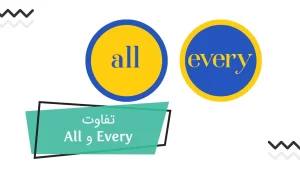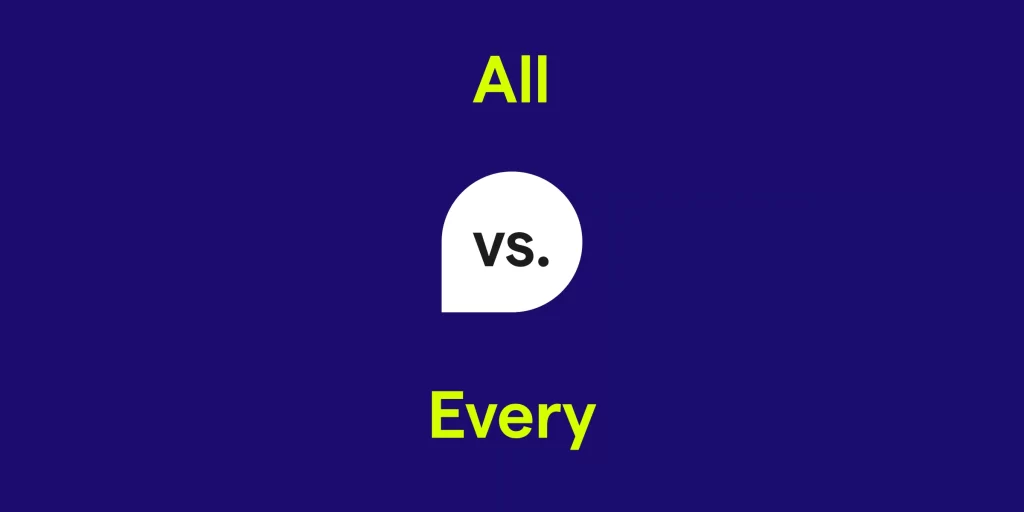گرامر all و every
سلام خدمت دوستان و همراهان انگلیسی با ماندانا
در این مقاله قراره در کنار یکدیگر به موضوع قوائد all و every بپردازیم. تا انتهای مقاله همراه ما باشید تا با هم این گرامر را به راحتی یاد بگیرید.
1. کلمه every به معنی “هر” و “همه” با اسامی مفرد و کلمه all به معنی “همه” با اسامی جمع می آیند.
3. از all قبل از اسامی غیر قابل شمارش هم استفاده می کنیم ولی از every نمی توانیم.
4 .فرق بین all day و every day
امیدوارم مقاله all و every برای شما مفید باشه.

Every cook needs good knives and a chopping board.
The negative of every is normally not every:
Not every noun has a plural form.
We use singular pronouns and possessives to refer back to every + noun, especially in more formal styles, and especially when what we refer to is not human:
Every store has a manager in charge of it.
Every area has its own park.
In less formal styles, the pronoun or possessive may be plural:
Every student gets a laptop. They have to give it back at the end of the course.
Every user has their own password.
We use every with a singular noun to refer to something that happens regularly:
The festival is held every August in Budapest.
I leave the house every morning at 6 am.
We write two words when every day means each day. The adjective everyday is one word. It means ‘normal’ or ‘usual’:
The boys meet up every day in the park.
Every
Every meaning ‘each member of a group’
We use every + singular noun to refer individually to all the members of a complete group of something:
There’s a photograph on the wall of every child in the school.
Try to answer every question.
When every refers to the subject of the clause, we use a singular verb:
Every player wants to be in a winning team.
Not: Every player want …
Every cook needs good knives and a chopping board.
The negative of every is normally not every:
Not every noun has a plural form.
We use singular pronouns and possessives to refer back to every + noun, especially in more formal styles, and especially when what we refer to is not human:
Every store has a manager in charge of it.
Every area has its own park.
In less formal styles, the pronoun or possessive may be plural:
Every student gets a laptop. They have to give it back at the end of the course.
Every user has their own password.
Every: regular situations
We use every with a singular noun to refer to something that happens regularly:
The festival is held every August in Budapest.
I leave the house every morning at 6 am.
Not: I leave the house every mornings at 6 am.
We use every with a number and a plural noun to refer to regular intervals of time or numbers:
There are buses into town every ten minutes.
He now works from home, travelling to Amsterdam every two weeks.
Every day or everyday?
We write two words when every day means each day. The adjective everyday is one word. It means ‘normal’ or ‘usual’:
The boys meet up every day in the park.
Not: The boys meet up everyday in the park.
In the Soviet Union, poetry was at the centre of everyday life.
Every single
We often use single with every to emphasise each member of a complete group of people or things:
He was the only player who played in every single match last season.
I’ve got to photocopy every single page.


